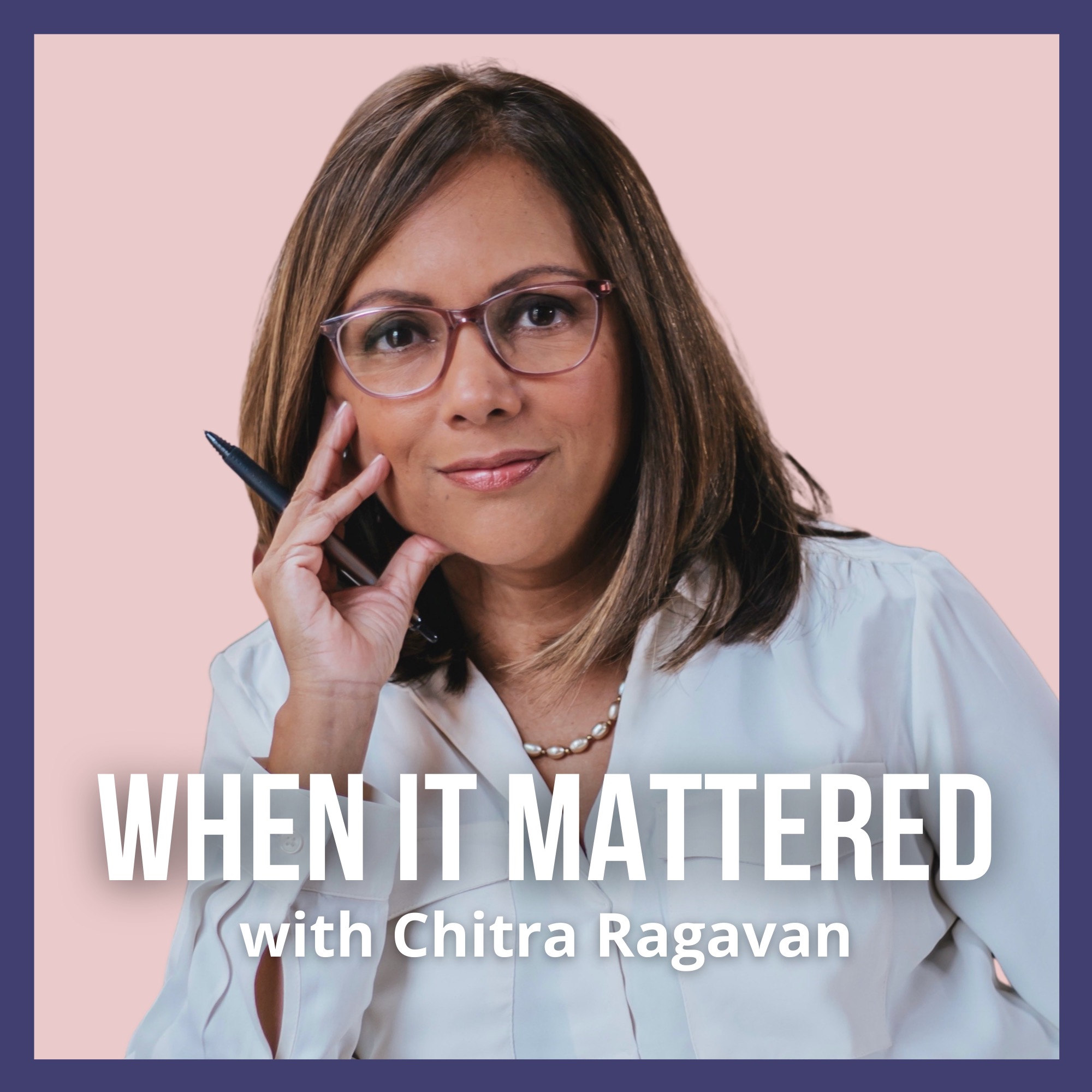
When it Mattered
Chitra Ragavan

1 Creator

1 Creator

2 Listeners
All episodes
Best episodes
Seasons
Top 10 When it Mattered Episodes
Goodpods has curated a list of the 10 best When it Mattered episodes, ranked by the number of listens and likes each episode have garnered from our listeners. If you are listening to When it Mattered for the first time, there's no better place to start than with one of these standout episodes. If you are a fan of the show, vote for your favorite When it Mattered episode by adding your comments to the episode page.

Lynsey Addario
When it Mattered
03/03/20 • 48 min

1 Listener

Binyamin Appelbaum
When it Mattered
02/10/20 • 45 min
1 Listener

Maj Gen Robert Wheeler
When it Mattered
10/05/22 • 63 min
Ep. No. 70 — He built a career path at the age of eight to become a U.S. Air Force combat pilot and safe-keeper of U.S. nuclear weapons / Maj Gen Robert Wheeler, USAF (ret), CEO, Strategic Consulting Unlimited.
When Robert Wheeler was just 8 years old, his mother took him to the Chicago Air Show. It changed his life. From that moment on, Wheeler became obsessed with an unwavering goal: To become a U.S. fighter pilot.
Wheeler more than fulfilled his dream. During his 32-year career in the U.S. Air Force, he served as a combat pilot in the B-52 and B-2, earning more than 5,000 flight hours and seven operational commands, including Wing Commands in the two largest bomber wings in the Air Force.
Wheeler also served as the Deputy Director for Nuclear Operations, U.S. Strategic Command, Offutt Air Force Base, Neb. As such, he served as the principal adviser to the commander on issues pertaining to strategic deterrence and nuclear operations. He served as the command’s principal flag officer responsible for management and oversight of the nuclear enterprise. He retired in March 2016.
Major General Wheeler’s decorated career in the military culminated in his role as DOD Deputy Chief Information Officer for Information Infrastructure and Command, Control, Communications/Computers (C4), at the Office of the Secretary of Defense at the Pentagon.
In these critical roles, Wheeler obtained a wealth of knowledge about the ways of Vladimir Putin and has some key insights into the trajectory of the Russian President’s invasion of Ukraine and Ukraine’s surge of wins in the ground game in recent weeks. And he offers sobering insights into Putin’s threats to use nuclear weapons against Ukraine if pushed too far against the wall.
Thanks for Listening.
👍 Please Subscribe and give a Thumbs Up!
🎙️https://bit.ly/ChitraRagavanChannel
👂Contact Chitra & Link to Podcast Platforms
When It Mattered:
🎙️ Ep. 60. Putin laid his cards on the table years before the Ukraine invasion / Gen. James Jones, USMC
🎙️ Ep. 66. Distinguished diplomat reclaims her narrative / Marie Yovanovitch, “Lessons from the Edge”
Techtopia:
🎙️ Ep. 29. How drones, crypto, and satellites are changing ...

Mara Hvistendahl
When it Mattered
02/24/20 • 35 min

James Boyd
When it Mattered
08/20/19 • 32 min

Anne Speckhard
When it Mattered
06/08/20 • 59 min

Courtney Bowman
When it Mattered
05/11/20 • 51 min

Stanley Alpert
When it Mattered
10/08/19 • 44 min

Susan McPherson
When it Mattered
10/06/21 • 35 min

Asra Nomani
When it Mattered
01/27/21 • 48 min
Show more best episodes

Show more best episodes
FAQ
How many episodes does When it Mattered have?
When it Mattered currently has 72 episodes available.
What topics does When it Mattered cover?
The podcast is about Management, Entrepreneurship, Podcasts and Business.
What is the most popular episode on When it Mattered?
The episode title 'Binyamin Appelbaum' is the most popular.
What is the average episode length on When it Mattered?
The average episode length on When it Mattered is 42 minutes.
How often are episodes of When it Mattered released?
Episodes of When it Mattered are typically released every 7 days, 1 hour.
When was the first episode of When it Mattered?
The first episode of When it Mattered was released on Jul 10, 2019.
Show more FAQ

Show more FAQ